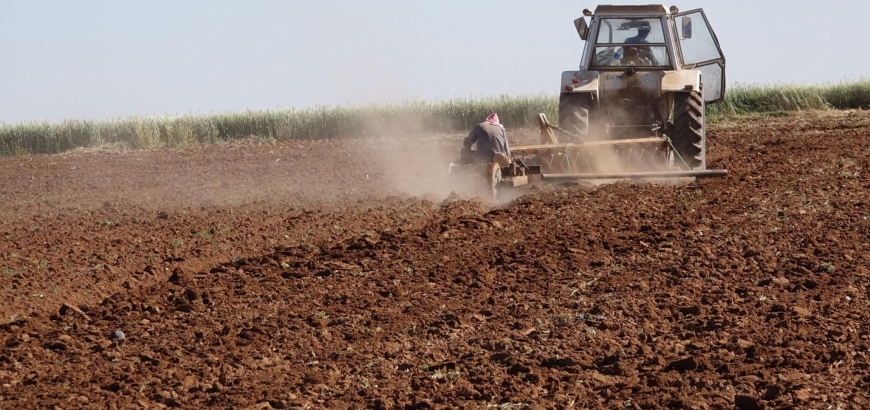The economic and agricultural agency of the Self-Administration has revealed they have low stores of wheat for seed and flour next year, saying that they would turn to imports to fill the gap.
The co-head of the agency, Salman Baroudou told the Arta FM station that the Self-Administration was in the process of buying more than 700,000 tons of wheat to secure flour and seed for the al-Jazira area and northeastern Syria in general.
Baroudou added that the agency needed about 800,000 to 900,000 tons, saying that their stores were so far at 375,000 tons of wheat.
According to Baroudou, the Self-Administration would resort to importing wheat from, “inside Syria or from abroad in order to plug the gap and provide the area with the flour and seed it needs.”
According to local sources in the Hassakeh countryside, a number of farmers have stored large amounts of their yields this season after the “low prices” set by the Administration.
A farmer, Ribar Alou, from the Ras al-Ayn countryside told Alsouria Net that he had stored over half his wheat harvest, adding that, “Some of it will go to seed and the rest will be sold at a good price, when I find the price that fits the efforts and expenses I put into it.”
The farmer added that: “I’m not alone in storing wheat. A lot of farmers in the area have done the same thing. It’s a step that’s our right as long as Self-Administration prices are low and they won’t buy the harvest until after categorizing it as of low quality … we consider this to be daylight robbery.”
Baroudou’s statement about the low wheat supplies created discontent among eastern region residents, who think it is to pave way for raising seed and bread prices next season.
A retired manager in the General Organization for Seed Multiplication, Zubair Abu Jalal, told Alsouria Net that if the prices are raised this will be an unprecedented economic disaster, adding that many of those affected will not be able to plant their land again, and that this will negatively impact all residents and their lives in the Self-Administration areas.
The Self-Administration had expected to produce 2.6 million tons of wheat and barley over the current agricultural season, while fires consumed about 80,000 hectares of yields in northeastern Syria, according to the economic and agricultural agency.
This article was translated and edited by The Syrian Observer. The Syrian Observer has not verified the content of this story. Responsibility for the information and views set out in this article lies entirely with the author.


